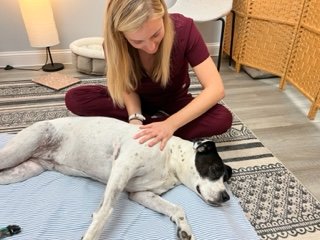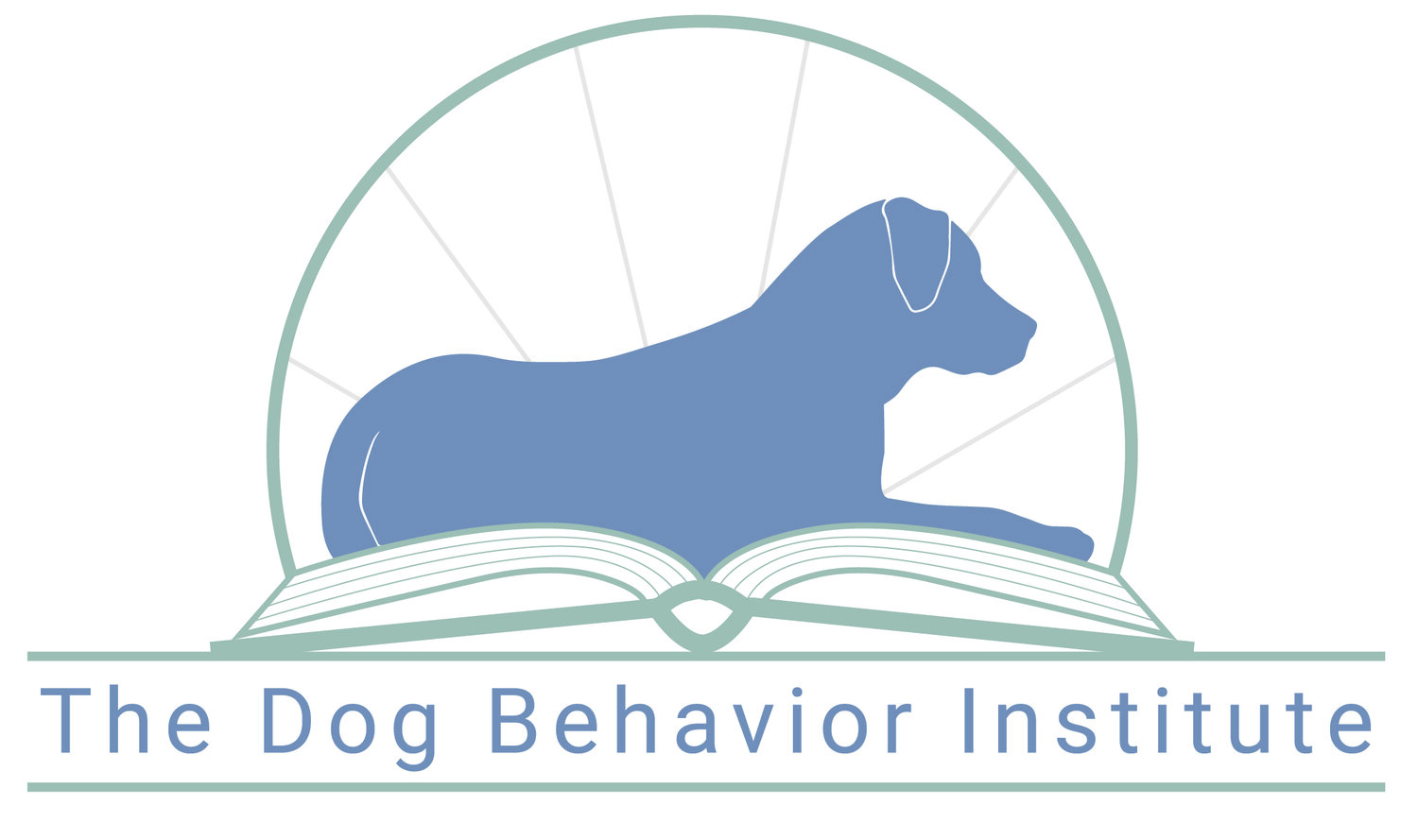The Dog Behavior Institute Blog

What I’m looking for in a breeder
Ran here! As I have begun to consider my next dog (which will hopefully join our family in, oh, 5-10 years), I have been learning everything I can about breeders, expectations, requirements, timelines, red flags, and green flags. I don’t have all the answers, and I am sure that there is a lot of nuance in every aspect of this. However, I have put this list together while considering what I am looking for: a dog who is as healthy as possible, a breeder who will offer support to both me and my dog, and someone who adheres to what I have found to be “best practices.”


Kerby the Herding Dog?
As a researcher, the task in front of me was clear if not easy: Learn everything I can about herding, find mentors and colleagues, and then do my best to teach and learn with Kerby.

Interview with Samantha Hankey, Certified Veterinary Nurse
When you are with your animal every day you may not notice that they stopped picking up certain toys, they weren’t sleeping as deeply, or maybe they were hesitating to go up or down the stairs. These are just a few examples but there are so many behaviors and routines that can change when your dog is feeling better. It makes me so happy when I hear a dog's quality of life has improved or they are just a little bit more comfortable/happier.

The Dogby Discovery Kit Review
Given the importance of enrichment, Ran and I were delighted when the creator of the Dogby Discovery Kits offered to send us each a free box in exchange for an honest review. This was particularly fun because as you may know, Ran’s dog Beacon and my dog Kerby, though fans of lots of the same things (e.g., chasing woodland creatures, peanut butter, the great outdoors) are very different dogs, and we were curious about how they would each respond to the items in the enrichment box we were sent.

The What & Why of Behavior Assessments
One of our most requested services is what we offer for those who are struggling with their dogs’ behaviors: the Intensive Behavior Program and the Behavior Jumpstart. One thing that makes both these programs unique is our emphasis on assessment as the first step before we start any kind of training work with our clients. Potential clients often ask us, “Why can’t we just get started with training?” Or “My dog is really struggling, we need to make changes right away, why should we do an assessment?”

Small Businesses Are Not Neutral
When we sat down to craft what our business would actually be, again and again we found ourselves returning to values. We had a general sense of what types of services we wanted to provide for clients with dogs and dog professionals with clients, but we wanted to do it in a way that honestly just wouldn’t feel icky.


Puppies Unleashed!
Last week we introduced some great books that can help guide you in the early days of life with your new puppy or dog. One of the books we recommended was Control Unleashed: The Puppy Program. This week we’ll be talking more about why Control Unleashed is such a great foundational framework for puppies (or your new dog!).

The Puppy Book Review Round-Up
How can it be January again?! Although each new year is different, when it comes to dog training and behavior consultation one thing is fairly consistent from year-to-year: January is the month of the new canine family member. Whether their new dogs or puppies are from breeders, rescues, and shelters, it can be overwhelming for people to sort through the wealth of information out there on how to raise their new family member the best way possible. We get a lot of questions about integrating a new furry family member at this time of year. As a result, we wanted to start the year off with a Puppy Book Round-up to get you off to a great start!

2022 at DBI
For us, the end of the year calls for a few things: finding the best bits of daylight for long walks with dogs, pulling out all of the winter gear and light up collars, and looking back on what the year has held. This year especially has held many big and small things worth reflecting on for us at DBI. We aren’t going to share them all here, but there are a few we’d like to lift up…

Interview with Kaitlin Rondeau, DVM
This month we are so pleased to introduce you to Kaitlin Rondeau, DVM. Kaitlin works at Concord Animal Hospital in Concord, MA. Kaitlin has been such a wonderful resource, always willing to brainstorm and research the best approaches to our dogs’ care. I (Stephanie) was thrilled to interview Kaitlin for this series and learn more about what it is like to work with dogs as a veterinarian and what we can do to help our dogs be more comfortable with their veterinary care.


Introducing: The DBI Interview Series
Our inaugural interview took place this fall with Dana Rebaza, CSAT, CPDT-KA, KPA CTP, VSA-CDT. Dana (they/she/he) is a fabulous dog trainer and consultant who owns The Brave Dog Collective. They are a Certified Separation Anxiety Trainer (CSAT) who works specifically with dogs who suffer from separation anxiety and their people. In our conversation, Dana and I talked about their work with separation anxiety dogs and what makes the work both challenging and fulfilling. It was such a pleasure to conduct this interview.. As you’ll read below, Dana provided such thoughtful, honest, and heartfelt answers to our questions. Read on to learn more about Dana and the important work they are doing.

What you should teach your dog
Often when I meet with people, they talk to me about what their dogs “should” be able to do. Or I ask them what skills are already in their dogs’ repertoire - that is, what tricks, or behaviors does the dog already know how to do fluently? This can be helpful information as we plan what new skills to teach or how to incorporate their current skills into the environment they are living in. When answering this question, a lot of people seem embarrassed that their dogs may not know certain things. “He can sit!” they say, “but he can’t fetch or anything fancy like that.”
Here’s the thing: there is no “supposed” to. While cultural conversation around dogs suggests that there are certain “commands” that a dog “must” know - that’s just not true. Not every dog needs to know every skill or every behavior.

You are not your dog’s behavior analyst
In May, I attended a conference for Behavior Analysts. There were professionals there from all over the world, and people who work in the field of Behavior Analysis in a wide range of contexts. Most of the people at the conference work professionally with humans, and many were eager to talk about their dogs. Perhaps I should not have been surprised by the number of people who said to me, “My dog does [problem behavior], and I’m a behavior analyst, so I know how to fix it, but I just haven’t done it yet.” Here’s the thing. You might be a behavior analyst, but the chances are that you actually don’t know how to fix it.

The Mythical Brewery Dog
In your mind you can picture the whole evening: When you get home from work, you’ll call out “Bravo, let’s go to the Beer Garden!” When you arrive at the brewery, he’ll be the perfect gentleman, trotting alongside you (he doesn’t pull on leash) to the table where your friends await your arrival. Bravo will be thrilled to greet everyone and will have a little wiggle in his step as he does so. He’ll jump ever so politely with just his front two paws a few inches off the ground, but your friends won’t mind - they’ll be happy to see him too…
Here’s the thing: I’m not 100% sure that Bravo exists in real life. Let me describe why I think Bravo might not exist and why it matters.
How I approach camping with my dog
This summer has been full of travel, and of course full of the accompanying pictures on social media. The more we have done this, the smoother the process has gotten. While I can’t provide specific tips on training without knowing you and your dog, and while there are a ton of articles out there about tips and tricks for camping with your dog - I’m happy to chime in with what has worked for me and Beacon! I’m not going to say “here’s what you should do” - because you know your dog, your experience level, and your comfort with camping best. You may be more advanced or just starting out. Take what works for you, and leave the rest!

Book Review: Pit Bull: The battle over an American icon by Bronwen Dickey
I cannot imagine a more thorough and thoughtful book on literally any topic than this one. Dickey provides a comprehensive history of pit bulls (and quickly dispels the myth that pit bull is a particular dog breed), giving consideration equally to the people who love them, and the people who fear them. If you’re going to read one dog-related book this year, Pit Bull should be it!

Can I say ‘no’ to my dog?
This seems like this should be a simple question, answered with either, “Yes, it’s fine!” or “Actually, that can be problematic or detrimental.” But we have a more complex answer, with three main areas to consider: What does “okay” mean? What are the person’s goals? And what are the dog’s needs?

